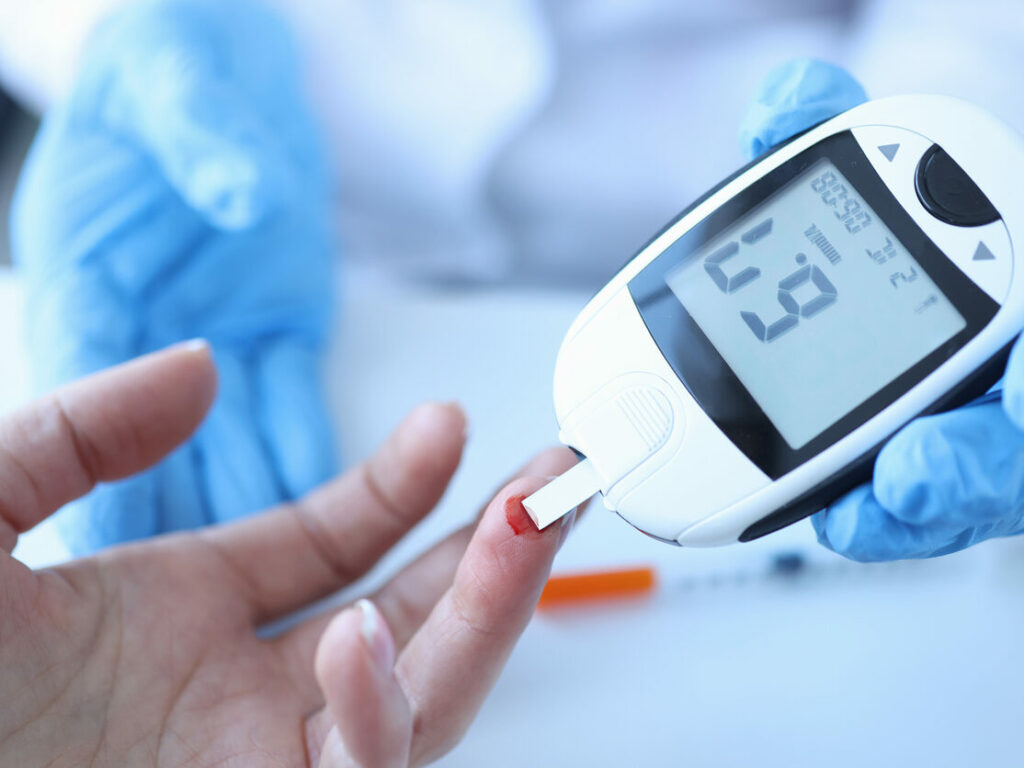Delving into the world of nutrition reveals a universal truth: moderation is key, especially when it comes to the impact of sugar consumption.
While whole foods like fruits, vegetables, dairy, and grains offer natural sugars digested slowly for sustained energy, added sugars present a different story.
Whether in refined forms like white and brown sugar, corn syrup, or seemingly wholesome options like honey and maple syrup, added sugars contribute empty calories, lacking essential nutrients.
Excessive intake becomes not only unnecessary but also potentially harmful.
Eliminating added sugars from your diet goes beyond mere improvements in weight and blood glucose levels.
Experts assert that the impact of sugar consumption in excess is a major culprit behind obesity and chronic diseases, including type 2 diabetes.
In this article, we explore eight compelling reasons why an excess of sugar poses significant threats to your overall health.
Ready to dive in? Let’s get started!
1. Weight Gain and Obesity

Impact of Sugar influences hormones regulating weight, potentially causing leptin resistance. Leptin signals satiety to the brain, but a diet high in sugar, as indicated by a 2008 animal study1, may disrupt this signalling over time, hindering the brain’s ability to recognize fullness.
2. Diabetes and Insulin Resistance

High sugar levels in the diet, according to a 2013 article2 in PLOS ONE, may contribute to the development of type 2 diabetes. Risk factors such as obesity and insulin resistance, highlighted by the National Institute of Diabetes and Digestive and Kidney Diseases, can further elevate the risk of diabetes due to the impact of sugar consumption. You can get your hands on healthy snacking options with myfitness natural peanut butter (crunchy).
3. Addictive Nature

Sugar triggers the release of chemicals – opioids and dopamine, activating the brain’s pleasure centre. This rapid tolerance acquisition may lead to a need for larger sugar doses, resembling addictive behaviour.
4. Heart Disease Connection

Elevated sugar intake can result in chronically high insulin levels, causing abnormal growth of muscle cells around blood vessels. This can contribute to high blood pressure and increase the risk of heart disease, brutally affecting your heart health.
5. Cancer

The impact of sugar intake in excess contributes to inflammation, oxidative stress, and obesity, influencing cancer risk. Studies, including a review in the Annual Review of Nutrition3, indicate a significant increase in cancer risk with sugary drink consumption.
6. Depression Risk

Beyond the quick transition from a sugar rush to a crash within 30 minutes, long-term consumption of sugary and junk foods is associated with a nearly 40% higher risk of developing depression4 compared to those with healthier eating habits.
7. Ageing Skin

The formation of advanced glycation end products (AGEs) from excess sugar may impact collagen formation in the skin. While evidence5 suggests a potential link between a high number of AGEs and accelerated visible ageing, more research on humans is needed to comprehensively understand the impact of sugar’s role in the ageing process.
8. High Blood Pressure

A 2011 study6 established a link between sugar-sweetened beverages and hypertension. Hypertension, highlighted in Research, is a recognized risk factor for cardiovascular disease, suggesting sugar exacerbates both conditions.
Conclusion
The repercussions of excessive impact of sugar consumption extend beyond mere tiredness and weight gain, getting into more serious health conditions, including the risk of heart disease. As added sugars hide in numerous processed foods and beverages, a proactive approach to reduce the impact of sugar intake in excess involves informed label reading, minimizing or eliminating common sources like sodas and cereals, and embracing whole, unprocessed foods.
For those grappling with concerns about weight management, potential diabetes symptoms, or adverse reactions post-sugar consumption, seeking guidance from a healthcare professional is paramount. By taking charge of the impact of sugar intake and making mindful choices, we pave the way for a healthier and more balanced lifestyle.
Frequently Asked Questions
What is the impact of sugar on damaging the body?
Eating too much sugar can contribute to people having too many calories, which can lead to weight gain. Being overweight increases your risk of health problems such as heart disease, some cancers and type 2 diabetes.
How much sugar is recommended in a day?
Men should consume no more than 9 teaspoons (36 grams or 150 calories) of added sugar per day. For women, the number is lower: 6 teaspoons (25 grams or 100 calories) per day.
What should one eat after eating too much sugar?
Flush out all that sweet stuff from your system by hydrating as soon as possible with water or other low-sugar fluids, and foods high in water content.
References
- Shapiro, A., Mu, W., Roncal, C., Cheng, K.-Y., Johnson, R. J., & Scarpace, P. J. (2008). Fructose-induced leptin resistance exacerbates weight gain in response to subsequent high-fat feeding. Retrieved from https://www.ncbi.nlm.nih.gov/pmc/articles/PMC2584858/ [↩]
- Basu, S., Yoffe, P., Hills, N., & Lustig, R. H. (n.d.). The relationship of sugar to population-level diabetes prevalence: an econometric analysis of repeated cross-sectional data. Retrieved from https://www.ncbi.nlm.nih.gov/pmc/articles/PMC3584048/ [↩]
- 9N;, M. N. E. J. (n.d.). Consumption of Sugars, Sugary Foods, and Sugary Beverages in Relation to Cancer Risk: A Systematic Review of Longitudinal Studies. Retrieved from https://pubmed.ncbi.nlm.nih.gov/29801420/ [↩]
- Knüppel, A., Shipley, M. J., Llewellyn, C. H., & Brunner, E. J. (2017). Sugar intake from sweet food and beverages, common mental disorder and depression: prospective findings from the Whitehall II study. Retrieved from https://www.ncbi.nlm.nih.gov/pmc/articles/PMC5532289/ [↩]
- STL Volume 20 Number 6 -, By, STL Volume 20 Number 6Purchase PDF for $2.79, 6, S. V. 20 N., & $2.79, P. P. for. (2019). Sugar Sag: Glycation and the Role of Diet in Aging Skin. Retrieved from https://www.skintherapyletter.com/aging-skin/glycation/ [↩]
- Brown, I. J., Stamler, J., Van Horn, L., Robertson, C. E., Chan, Q., Dyer, A. R., … International Study of Macro/Micronutrients and Blood Pressure Research Group. (2011). Sugar-sweetened beverage, sugar intake of individuals, and their blood pressure: international study of macro/micronutrients and blood pressure. Retrieved from https://www.ncbi.nlm.nih.gov/pmc/articles/PMC3086758/ [↩]

